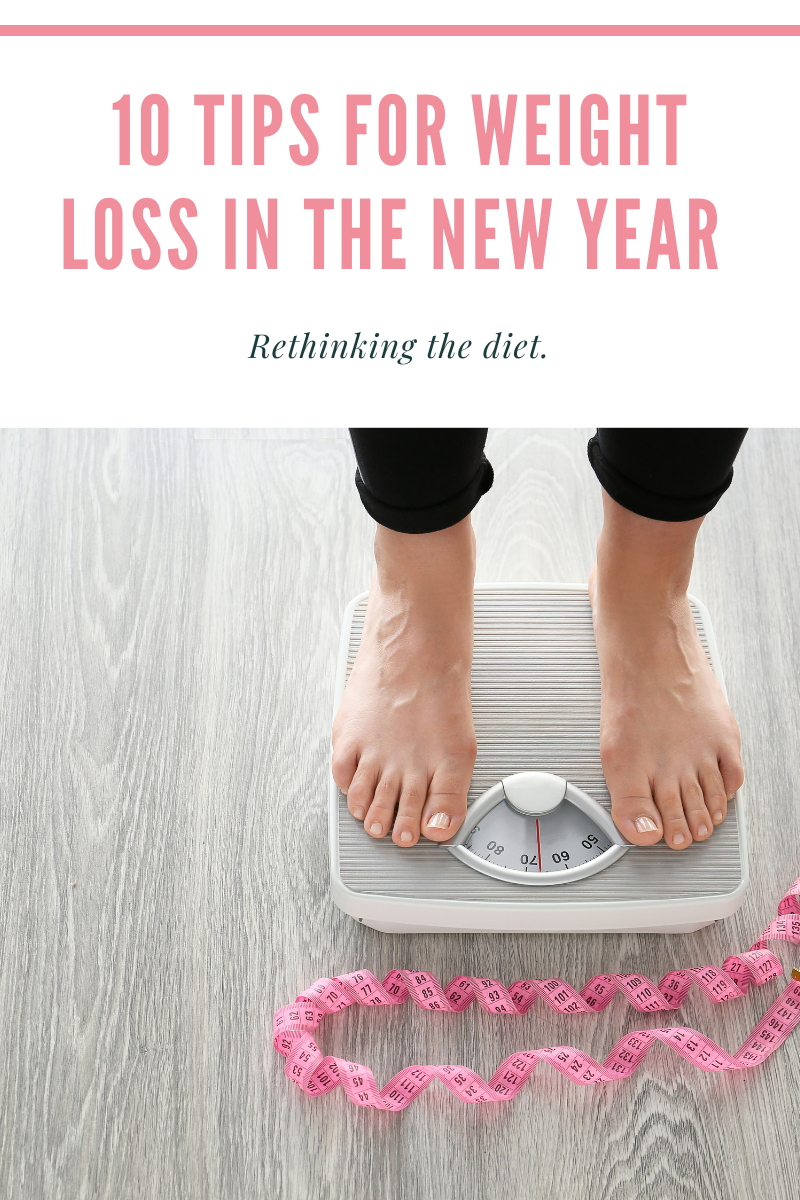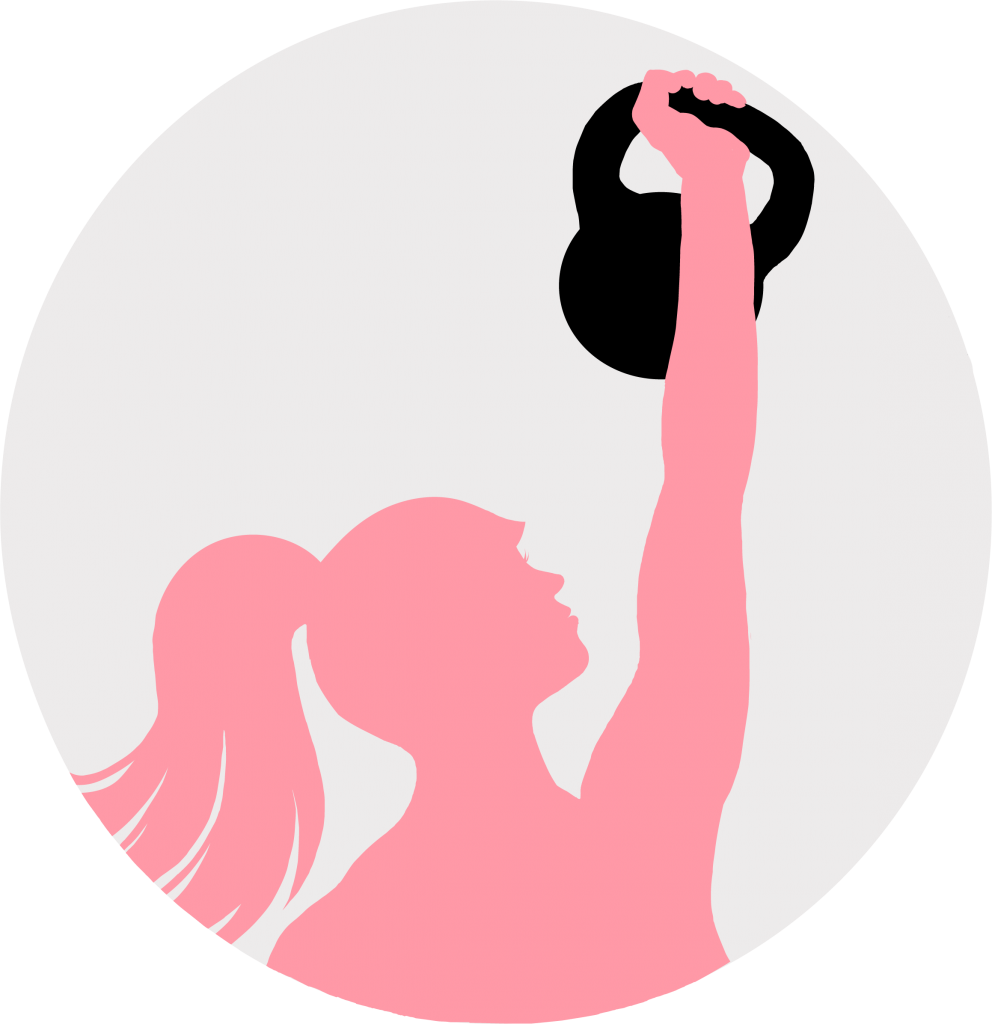Welcome to the New Year. The diet commercials and hacks on social media are inundating us at every turn. Words like “resolution”, “diet’“, “no carb” or “low carb”, “and New year, new you” are everywhere.
I’m of the mindset that you don’t need a new you in the new year. You are amazing as is. That said, there is nothing wrong with wanting to make some changes in your life or lose some weight.
What I don’t like is the diet culture. This culture leads you to believe that you are unworthy unless you are thin. If you are thin, then you are not thin enough. In order to achieve this ideal body, you must detox (a fancy word for diarhea), starve yourself, do crazy workouts, and basically make yourself miserable. It’s truly a dysfunctional culture aimed mainly at women.
Since I am not a fan of these New Year’s weight loss messages, I have come up with some tips to help you lose weight safely, and hopefully help you have a better relationship with food, exercise, and yourself.
- ADD, DON’T SUBTRACTDiets tend to have you get rid of all of the undesirable foods and take your calorie deficit super low. You can no longer have bread, cookies, chips, cereal, cheese, and a host of other foods. I disagree with this clean slate approach.Instead, try adding something healthier to what you are already eating. For example, if you usually have sugary cereal or a giant Wawa muffin for breakfast, try adding a protein (ie. eggs or Greek yogurt) to that breakfast. Try that for a couple of weeks, then add a vegetable or fruit. Eventually you can begin to swap out that cereal or muffin for a less sugary, whole grain option.The idea is to add in healthier options without making yourself crazy by revamping your habits all at once.
- MAKE CHANGES OVER TIME, RATHER THAN ALL AT ONCEAs I stated above, you can make yourself crazy by changing your diet all at once. You might feel deprived and throw in the towel.Changing habits is a process. Some days you are great at it, and some days not so much. If you keep working on small changes over time you have a better chance at succeeding and sticking to the new habits.
- PRIORITIZE NUTRIENT DENSE FOODSAs you make changes to your diet, try to prioritize nutrient dense foods (lean protein, vegetables, fruit, whole grains, legumes, seeds, and healthy fats). A variety of these foods will help improve your overall health.
- DON’T DEPRIVE YOURSELFThinking of completely ditching the bread, cookies, and chips? You really don’t have to. Deprivation only creates more desire.Instead, try to incorporate a little of your favorite foods into your diet. These foods can actually coexist with a healthy diet and weight loss. The trick is not to overeat them, but allow yourself a little bit here and there.Similarly, ditch the cheat day. That is only veiled deprivation followed by bingeing. You try to be “good” all week, only to go crazy on your designated cheat day.Rather than a cheat day, sprinkle in a little of what you enjoy throughout the week. You will still be prioritizing nutrient dense foods while enjoying the fun foods you love.
- LOOK FOR EASY RECIPESThere is nothing I hate more than recipes that have a long list of ingredients and take a while to prep and cook. Who has time for that?Look for recipes with fewer ingredients and don’t require so much prep time. Also, look for crock pot or Instant Pot recipes. These have been life savers for me. Plus, I usually have several days worth of leftovers. Win!
- MAKE MORE THAN YOU NEEDWhen making meals, make more than you need for that meal. Making more will give you leftovers for lunches and dinners throughout the week.One thing I like to do is make a batch of chicken, rice, or other easy staple to put in the refrigerator to add to meals throughout the week. I can add the chicken to salads, use for sandwiches instead of lunchmeat, or put with veggies and rice or potatoes for a nice meal.
- PRIORITIZE STRENGTH TRAININGThe prevailing advice for exercise and weight loss was always cardio, cardio, cardio. Although there is a place for cardio, when it comes to weight loss, strength training will be more helpful.The more muscle you have, the more calories you will burn at rest. This is because muscle takes more energy (calories) to maintain muscle.Unfortunately, we begin to lose muscle mass as we get older. We actually begin losing muscle mass as early as our 30’s! So not fair. That is why it is important to strength train to keep that muscle, not only for weight loss purposes, but to stay strong as we age.
- START SLOW AND INCREASE OVER TIMEDid you ever go full force into a workout program only to be unable to move later? Not fun. When starting to workout, it’s alright to begin slowly. Two days per week of strength training is a good place to start for the first month. After that first month you can add on a third day of strength training, as well as 2 days of cardio (20-30 minutes is fine). Eventually you may be able to add up to 5 days of strength training with 2 days of cardio. Of course, that will depend on your schedule and goals.
- DITCH THE SCALESo this may not sit well with most people, especially those who weigh themselves daily. I’m not anti-scale. I’m just not a big fan of using that number on the scale to define our efforts, accomplishments, or ourselves.How often have you weighed yourself only to find the number either didn’t budge or went up a little? Did you feel like a failure? Weight fluctuates daily, and even hourly. Are you getting closer to your period? Your weight will go up because of hormonal shifts and some bloating. You are not a failure for this. Did you eat a little more salt yesterday? That scale number may go up from the extra salt intake. You are not a failure for this.My advice is to weigh yourself less often and seek out those non-scale victories, such as:*recognizing all of the things you did to stay consistent in your diet and you exercise routine*noticing your clothes feel looser*having more energy*lifting heavier weights in the gym*finding it easier to walk, run, or go upstairs without getting winded*seeing your lab work come back with better numbers*feeling more engaged with your loved onesLook more often at those non-scale victories as a better indicator of your progress than simply relying on the number on the scale. More than likely you will notice the weight go down, just maybe not on your timeline.
- GET MORE SLEEPSleep is probably the most underrated tool for weight loss, but is quite important. If you are not getting enough sleep, you may crave simple carbohydrates (sugary snacks, chips, pretzels, etc.) to help give you a quick burst of energy. That leads to crashes throughout the day, as well as weight gain.Your cells repair themselves when you sleep, which makes sleep an important recovery tool when exercising. If you aren’t getting enough shut eye, your body can’t recover properly. This can lead to lack of energy in the gym and the possibility of injury.So skip that glass of bedtime wine, shut down your devices, and turn off that tv so you can go to bed earlier for a good night’s sleep.
- BONUS TIP: SEEK HELPSometimes you need extra help, and that is perfectly fine. If you find that you are struggling to lose weight no matter what you do, look into hiring a registered dietician to help fine tune your diet. If your weight gain is due to a past trauma, seek the help of a mental health professional. If you believe you may have a metabolic issue (ie. thyroid dysfunction, PCOS, Hashimoto’s Disease) talk to your doctor to be sure and get the proper help needed.
I hope these tips are helpful. Here is to a healthy New Year!



